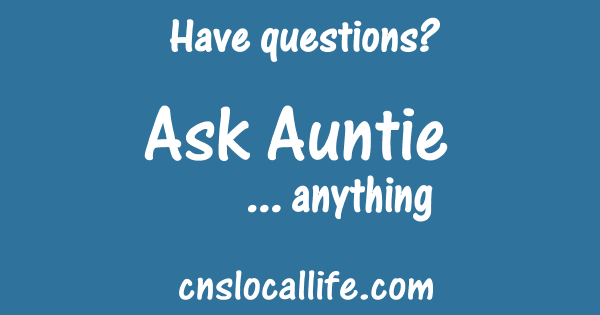I’ve heard it’s illegal to practise obeah here. Is that true? That seems to go against the Bill of Rights, which guarantee freedom of religion.
Auntie’s answer: Yes, it is true – it is against the law to practise obeah in the Cayman Islands. Just to be clear, Section 170(1) of the Penal Code (2013 Revision) says “a person practising ‘obeah’ or dealing in ‘obeah’ or ‘myalism’ means a person who, to effect any fraudulent or unlawful purpose, or for gain, or for the purpose of frightening any person, uses, or pretends to use, occult means, or pretends to possess any supernatural power or knowledge”.
Following on from that, Section 170(2) says a person who “(a) practises or deals in obeah or myalism; (b) for any fraudulent or unlawful purpose consults any person practising or reputed to be practising or who has been convicted of any offence under the law relating to obeah or myalism; or (c) for the purpose of effecting any object or of bringing about any event, by the use of occult means or any supernatural power or knowledge, consults any person practising or reputed to be practising obeah or myalism or any person who has been convicted of an offence relating to obeah or myalism, or any person pretending to possess supernatural powers and agrees to reward the person so consulted, commits an offence”.
I realise that is a lot to digest, but I wanted to be thorough. You are right, though, that the Bill of Rights of the Cayman Islands Constitution in Section 10, on conscience and religion, says, “(1) No person shall be hindered by government in the enjoyment of his or her freedom of conscience. (2) Freedom of conscience includes freedom of thought and of religion or religious denomination; freedom to change his or her religion, religious denomination or belief; and freedom, either alone or in community with others, both in public and in private, to manifest and propagate his or her religion or belief in worship, teaching, practice, observance and day of worship.”
To explain that apparent discrepancy between those legal documents, I asked for help from the Human Rights Commission (HRC). But as before when the HRC has provided guidance, a representative cautioned that their answer can only be given in general terms and they cannot offer any legal advice.
The official then explained that people in the Cayman Islands are indeed free to hold particular beliefs and practise the religion they choose but the right to conscience and religion is engrained in the Constitution as a qualified right, which “can only be restricted or taken away by the government in certain broadly defined circumstances. Such circumstances are those such as in the interests of defence, public safety, public order, public morality or public health; or for the purpose of protecting the rights and freedoms of other persons.”
In the case of obeah, it is possible that the government made practising it illegal under those “broadly defined circumstances”. I will stress here that the HRC cannot speak to what the government may or may not have considered in making that decision. However, in deciding on that interpretation, I believe it would have been expected that the government balanced freedom of religion as guaranteed in the Bill of Rights against those circumstances that would justify making obeah illegal.
Either way, the bottom line is that it is against the law to practice obeah in the Cayman Islands.
The documents mentioned in this column can be found on the CNS Library



Just like the current challenges to the Permanent Residency backlog, there will eventually be a challenge to this “law” on the basis of the ECHR or the Bill of Rights in the current Cayman Constitution (2009). It will be interesting to see how the courts handle it!
The Constitution protects the rights of the people’s “freedom OF religion,” not the “freedom FROM religion!” The same issues are still playing out in our neighbors to the north over 225 years out on their Constitution.
Any sort of darkness or evil should be prohibited. If a religion doesn’t recognize Jesus as their Saviour it is a false religion. Wake up people!!! Don’t mess with darkness you will get burnt and jeoprodising your soul. All that matters is what happens to us after this life so be wise in your choices and choose God as your everything. Don’t dabble with nonsense you are putting your soul at risk!!
So Muslims and Sikhs are evil? I suspect the evil ones are the churches that fill your head full of hatred and intolerance
Yes those religions perpetrate evil acts believing an ‘eye for an eye, a tooth for a tooth’ and elevate the person who does this and kills. This is not what Jesus asked us to do, he preached peace and forgiveness. It is not his teaching for what is happening around the world in terrorist attacks.
All religions are evil!
Doesn’t look totally prohibited to me. The law appears to require an element of financial gain, fraud or unlawful purpose for the practice to be prohibited.
Sounds like any other religion to me.
We should ask ourselves which is more scary:
a) the purported trampling of the rights of Obeah practitioners, or
b) the fact that our law makers have been so genuinely fearful of imaginary supernatural conjurings and curses (and accompanying money shakedown) that they have taken the time to encode this in the Penal Code to such exacting parameters – and have left it in all these years. It’s almost surprising there isn’t anti duppy, werewolf and vampire legislation.
Is against the law to practice Astrology?
no it isnt. its actually a school subject you may chose to take at St. Ignatius when i attended school there 3 years ago
CNS: I suspect the subject option was astronomy.
LOL, apparently St. Ignatius school didn’t teach you the difference between astrology and astronomy.
Believe it or not I’ve done a lot of research and some of these laws where written by Christian white slave masters who made Africans that practiced obeah and other religious/spiritual rituals convert to Christianity or face death sentence.
These laws are watered down versions of the original white master slave laws who dammed everything by a black man as devil worshipping. However deep down these white men knew the superiority of the black man and the connection to god and this hearth as superior beings, black people have always been way more advances that the white man, the only reason the white man caught up in time is because they learned from black teachers who taught greeks and romans who then elected them selves as masters of the universe who killed anyone who didn’t obey their rules and religions. This is why I don’t understand how any black person can be a Christian in todays world because those same Christians killed your ancestors and justified it in the name of god. Slaves are mentioned in the bible and how you should treat your slave if he/she disrespects their masters is also in there.
Spirituality is how you get close to God, being in touch with the power of the universe and mother earth is how you get close to go and realizing that God is within us.
Open your mind, question everything and don’t settle for another mans words without doing your own research.
This is weird. Obeah may be perfect for you.
I bet yoù didn’t even spend 2 seconds to contemplate the validity of the subject. Sheeple like you is what’s wrong with the world, and religion just give you all a banner to rally around and comfort each other in ignorant bliss.
I would be interested to know how you came to the conclusion that the black man is superior (in general) to the members of any other race. A far better case could be made for the proposition that evangelical Protestant Christianity enobles and elevates the lot of any believer of any race.
There is absolutely no way that s.170 can be shoehorned into any of the generic derogations from Article 10. It is plainly a section that is both contrary to the ECHR and unconstitutional.
Section 170(1) of the Penal Code (2013 Revision) says “a person practising ‘obeah’ or dealing in ‘obeah’ or ‘myalism’ means a person who, to effect any fraudulent or unlawful purpose, or for gain, or for the purpose of frightening any person, uses, or pretends to use, occult means, or pretends to possess any supernatural power or knowledge”.
“Pretends to possess any supernatural power or knowledge”
#1 That is a claim almost every religion makes.
#2 Based on that description, Astrology and Religion are illegal here, since both practices claim to posses a knowledge of a supernatural power.
You gotta love the loopholes in the law.
It isn’t illegal to practice Astrology. Why shouldn’t Obeah or Voodoo be legal to practice. All of the latter are considered superstitious practice.
Obeah is a religion…no harm done carry on.
Im spiritual and not religious my thoughts are for all those religious people should be charged taxes by every living head they always seek royalty in many form.